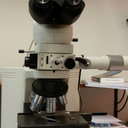Progression of diethylnitrosamine-induced hepatic carcinogenesis in carnitine-depleted rats.
關鍵詞
抽象
OBJECTIVE
To investigate whether carnitine deficiency is a risk factor during the development of diethylnitrosamine (DENA)-induced hepatic carcinogenesis.
METHODS
A total of 60 male Wistar albino rats were divided into six groups with 10 animals in each group. Rats in group 1 (control group) received a single intraperitoneal (i.p.) injection of normal saline. Animals in group 2 (carnitine-supplemented group) were given L-carnitine (200 mg/kg per day) in drinking water for 8 wk. Animals in group 3 (carnitine-depleted group) were given D-carnitine (200 mg/kg per day) and mildronate (200 mg/kg per day) in drinking water for 8 wk. Rats in group 4 (DENA group) were injected with a single dose of DENA (200 mg/kg, i.p.) and 2 wk later received a single dose of carbon tetrachloride (2 mL/kg) by gavage as 1:1 dilution in corn oil. Animals in group 5 (DENA-carnitine depleted group) received the same treatment as group 3 and group 4. Rats in group 6 (DENA-carnitine supplemented group) received the same treatment as group 2 and group 4.
RESULTS
Administration of DENA resulted in a significant increase in alanine transaminase (ALT), gamma-glutamyl transferase (G-GT), alkaline phosphatase (ALP), total bilirubin, thiobarbituric acid reactive substances (TBARS) and total nitrate/nitrite (NOx) and a significant decrease in reduced glutathione (GSH), glutathione peroxidase (GSHPx), catalase (CAT) and total carnitine content in liver tissues. In the carnitine-depleted rat model, DENA induced a dramatic increase in serum ALT, G-GT, ALP and total bilirubin, as well as a progressive reduction in total carnitine content in liver tissues. Interestingly, L-carnitine supplementation resulted in a complete reversal of the increase in liver enzymes, TBARS and NOx, and a decrease in total carnitine, GSH, GSHPx, and CAT induced by DENA, compared with the control values. Histopathological examination of liver tissues confirmed the biochemical data, where L-carnitine prevented DENA-induced hepatic carcinogenesis while D-carnitine-mildronate aggravated DENA-induced hepatic damage.
CONCLUSIONS
Data from this study suggest for the first time that: (1) carnitine deficiency is a risk factor and should be viewed as a mechanism in DENA-induced hepatic carcinogenesis; (2) oxidative stress plays an important role but is not the only cause of DENA-induced hepatic carcinogenesis; and (3) long-term L-carnitine supplementation prevents the development of DENA-induced liver cancer.


